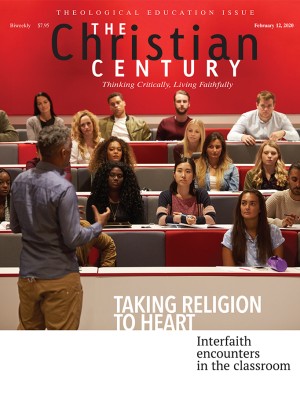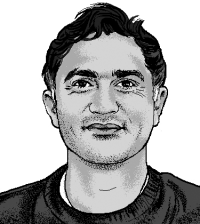February 23, Transfiguration A (Matthew 17:1–9)
God’s presence transfigures here, now, in the familiar.
I haven’t stopped thinking about an essay I read 15 years ago when I was in seminary. My pastoral life has been a decadelong conversation with Peter Dula’s “Fugitive Ecclesia,” a chapter from his dissertation that he later published in his book Cavell, Companionship, and Christian Theology. The theologians who occupied my attention at the time, Dula pointed out, were quick to travel to other times and places in order to talk about the church, in their search for faithfulness.
John Howard Yoder had to travel to the 16th century, where the early Anabaptists were more interesting than we are nowadays. John Milbank time-travels to the 11th century, back before the emergence of the secular. William Cavanaugh takes his readers on a trip to the Roman Catholic Church in Chile under Pinochet’s authoritarian regime. Daniel Bell heads to the base ecclesial communities in Latin America. All of them theologize to an elsewhere.
Read our latest issue or browse back issues.
“There is an unmistakable note of desperation in such traveling,” Dula observes. “It is as if the theologians are duplicating the role of the cultural anthropologists who found themselves having to go farther and farther upriver, deeper and deeper into the jungle, in order to find the pristine, the pure, the traditional.”
Dula’s words exposed an impulse in me: the temptation to escape the prosaic, to shift my attention to a remarkable time and an extraordinary people elsewhere rather than to be where I am, in my commonplace life with my ordinary congregation. There are wonders here, too, I’ve learned, marvels overlooked when grasping at exotic visions of a meaningful Christian life. The routines of congregational life beckon contemplation of God’s mysteries in the familiar, as we await transfigurations.
In the Bible story this week, Peter grasps at a spectacular vision, desperate to capture the spirit of the moment and reluctant to return to the mundane. He has stumbled into the sublime, and he wants to harness this experience. He wants for this episode to make a difference in his life and life of his friends—for this event on the mountaintop to shift the axis of power, to rearrange the cosmos. He envisions grandeur. This will ignite the revolution he has dreamed about, the dawn of redemption—if he can figure out how to render this fugitive episode durable, to stretch out this pivotal visitation, to share this thin place with others for them to revel in the glory of it all. This site will be the hinge of history, he imagines. He designs a plan and sketches the logistics.
There on the mountain, with Moses and Elijah at his side, the earthly Jesus is transfigured with divine splendor. In his astonishment, Peter rambles about tents to house the majesty of it all—tents for the presence of God, like the tabernacle of old. Peter begs to hold—to contain—this spectacular presence. He makes a proposal for how this meaningful event may persist, for the fleeting to become permanent.
We are like Peter, desperate for an enduring transfiguration. We are desperate for God’s presence to settle upon us, upon our lives and our neighborhoods and our world. A permanent transformation of society, the liberation of the world from the reign of sin. We want nothing less than the transfiguration of all things with the eternal goodness of God’s life—starting with us, in our hearts and our lives, as we dwell in the power of God and prepare to take this redemption to the world. “Lord, it is good for us to be here,” Peter says to Jesus, “I will make three dwellings here, one for you, one for Moses, and one for Elijah.”
But Peter soon learns that he controls nothing when it comes to God. The vision does not stay. “It vanished as quickly as it had come,” Karl Barth writes about this passage. “Jesus is again seen alone, and no longer transfigured before them.” So Peter follows Jesus down the mountain, a return to the unspectacular life they know—the day-to-day of discipleship, love for neighbors and strangers, and confrontations with the authorities—which will lead them to another hill, Golgotha.
Transfiguration is not a heavenly escape from this earthly life. The mountaintop experience is not a call to travel to an elsewhere, a vantage point from which to diagnose what’s wrong with this life, or a site from which to propose a remedy for our communities. The transfiguration narrative turns the disciples back to the place they already know, back to the familiar.
God’s presence transfigures this life. Ordinary revelations are here and there and everywhere—the whole world held in God’s hands, gifts offered to us not as possessions under our control but as abundant and unpredictable grace. Transfiguration is an invitation to return to our communities and our lives with renewed attention and patience, awaiting the luminescence of the mundane. To attend to the present and wonder at the ordinary; to let this life astonish us with the sacred. It is good for us to be here—right here where we are, for this too is holy ground.







